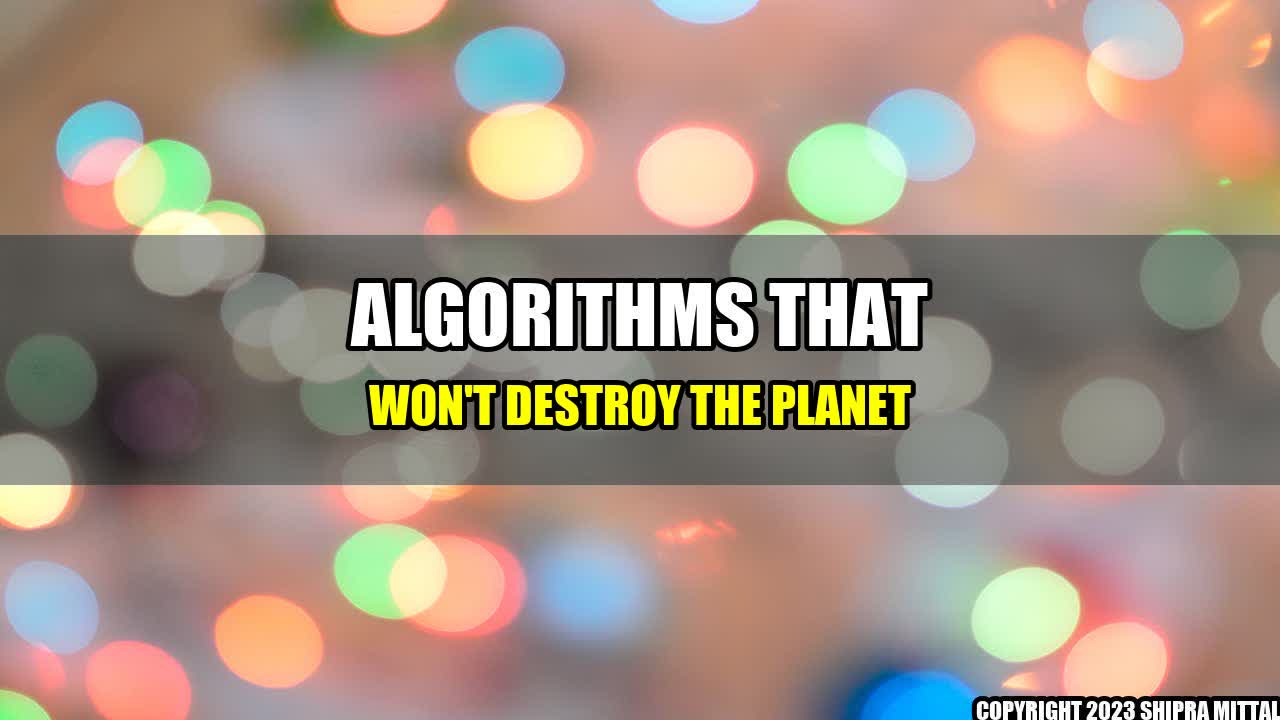Algorithms that won't destroy the planet

By ChatGPT's Energy Consumption

By ChatGPT's Energy Consumption
It was a day like any other in the city. People were rushing to and fro, cars honking, and the sun was beating down on the pavement. John was walking to work when he noticed something odd about the streetlights. They seemed to be turning on and off at random intervals, causing confusion and consternation among drivers.
John knew that something was wrong. He suspected that the city's traffic system had been hacked. He decided to investigate.
John's hunch was correct. The traffic system had been hacked by a group of criminals who were using it for their own ends. The hackers had created an algorithm that would cause traffic lights to turn on and off at random intervals. This not only caused confusion and frustration among drivers, but it also wasted a lot of energy. The algorithm was using up more power than necessary, and this was having a negative impact on the environment.
John knew that something had to be done. He contacted some experts in the field of algorithms and asked for their help in developing a solution that would not only fix the problem but would also be environmentally friendly.
The experts took on the challenge and came up with an algorithm that would not only fix the traffic lights but would also reduce energy consumption. They decided to base their algorithm on real-time traffic data. This would allow the traffic lights to respond to the flow of traffic and adjust their timing accordingly. It would also reduce the amount of energy that was being used to power the system.
The algorithm was put into action, and it worked perfectly. The traffic lights were no longer turning on and off at random intervals, and the flow of traffic was smoother than ever before. The amount of energy being used was significantly reduced, which was good news for the environment.
This was just the beginning. With the success of this algorithm, researchers began to work on other algorithms that would help to reduce energy consumption and protect the environment.
Example 1: The use of machine learning algorithms in data centers has reduced energy consumption by up to 40%. These algorithms can predict and adjust cooling systems based on real-time data, which leads to significant energy savings.
Example 2: Social media platforms like Facebook and Twitter use algorithms to optimize their data centers. These algorithms are designed to reduce energy consumption by up to 30%. They can detect when servers are not being used and shut them down to save energy.
Example 3: Transportation companies are using algorithms to optimize their routes and reduce fuel consumption. These algorithms take into account factors like traffic, road conditions, and weather to determine the most efficient routes. This leads to significant fuel savings and reduces the environmental impact of transportation.
References:
Hashtags: #Algorithms #EnergyConsumption #Environment #Optimization
Article Category: Technology
Curated by Team Akash.Mittal.Blog
Share on Twitter Share on LinkedIn